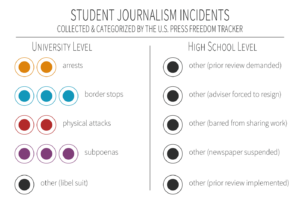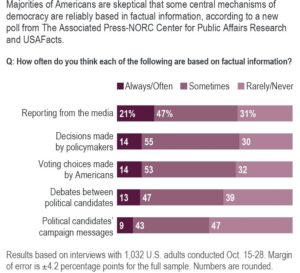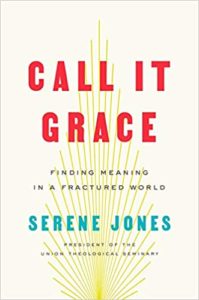Declaration of Conscience
December 8, 2019U.S. Senate History
June 1, 1950
As Senator Margaret Chase Smith of Maine boarded the Senate subway, she encountered the junior senator from Wisconsin, Joe McCarthy. “Margaret, you look very serious,” he said. “Are you going to make a speech?” Without hesitation, Smith replied: “Yes, and you will not like it!” The date was June 1, 1950, and Smith was about to deliver the most memorable speech of her long career.
Four months earlier, McCarthy had rocketed to national attention. In a well-publicized speech in Wheeling, West Virginia, he claimed to possess the names of 205 card-carrying communists in the State Department. Smith, like many of her colleagues, shared McCarthy’s concerns about communist subversion, but she grew skeptical when he repeatedly ignored her requests for evidence to back-up his accusations. “It was then,” she recalled, “that I began to wonder about the validity… and fairness of Joseph McCarthy’s charges.”
At first, Smith hesitated to speak. “I was a freshman Senator,” she explained, “and in those days, freshman Senators were to be seen and not heard.” She hoped a senior member would take the lead. “This great psychological fear…spread to the Senate,” she noted, “where a considerable amount of mental paralysis and muteness set in for fear of offending McCarthy.” As the weeks passed, Smith grew increasingly angry with McCarthy’s attacks and his defamation of individuals she considered above suspicion. Bowing to Senate rules on comity, Smith chose not to attack McCarthy, but to denounce the tactics that were becoming known as “McCarthyism.”
“Mr. President,” she began, “I would like to speak briefly and simply about a serious national condition…. The United States Senate has long enjoyed worldwide respect as the greatest deliberative body…. But recently that deliberative character has…been debased to…a forum of hate and character assassination.” In her 15-minute address, delivered as McCarthy looked on, Smith endorsed every American’s right to criticize, to protest, and to hold unpopular beliefs. “Freedom of speech is not what it used to be in America,” she complained. “It has been so abused by some that it is not exercised by others.” She asked her fellow Republicans not to ride to political victory on the “Four Horsemen of Calumny–Fear, Ignorance, Bigotry, and Smear.” As she concluded, Smith introduced a statement signed by herself and six other Republican senators–her “Declaration of Conscience.”
Her speech triggered a public explosion of support and criticism. “This cool breeze of honesty from Maine can blow the whole miasma out of the nation’s soul,” commented the Hartford Courant. “By one act of political courage, [Smith has] justified a lifetime in politics,” commented another. Newsweek magazine ran a cover story entitled “Senator Smith: A Woman Vice President?” Critics called her “Moscow-loving,” and much worse. McCarthy dismissed her and her supporters as “Snow White and the Six Dwarfs.”
Smith’s Declaration of Conscience did not end McCarthy’s reign of power, but she was one of the first senators to take such a stand. She continued to oppose him, at great personal cost, for the next four years. Finally, in December of 1954, the Senate belatedly concurred with the “lady from Maine” and censured McCarthy for conduct “contrary to senatorial traditions.” McCarthy’s career was over. Margaret Chase Smith’s career was just beginning.
[Full Script]
Mr. President:
I would like to speak briefly and simply about a serious national condition. It is a national feeling of fear and frustration that could result in national suicide and the end of everything that we Americans hold dear. It is a condition that comes from the lack of effective leadership in either the Legislative Branch or the Executive Branch of our Government.
That leadership is so lacking that serious and responsible proposals are being made that national advisory commissions be appointed to provide such critically needed leadership.
I speak as briefly as possible because too much harm has already been done with irresponsible words of bitterness and selfish political opportunism. I speak as briefly as possible because the issue is too great to be obscured by eloquence. I speak simply and briefly in the hope that my words will be taken to heart.
I speak as a Republican. I speak as a woman. I speak as a United States Senator. I speak as an American.
The United States Senate has long enjoyed worldwide respect as the greatest deliberative body in the world. But recently that deliberative character has too often been debased to the level of a forum of hate and character assassination sheltered by the shield of congressional immunity.
It is ironical that we Senators can in debate in the Senate directly or indirectly, by any form of words, impute to any American who is not a Senator any conduct or motive unworthy or unbecoming an American — and without that non-Senator American having any legal redress against us — yet if we say the same thing in the Senate about our colleagues we can be stopped on the grounds of being out of order.
It is strange that we can verbally attack anyone else without restraint and with full protection and yet we hold ourselves above the same type of criticism here on the Senate Floor. Surely the United States Senate is big enough to take self-criticism and self-appraisal. Surely we should be able to take the same kind of character attacks that we “dish out” to outsiders.
I think that it is high time for the United States Senate and its members to do some soul-searching — for us to weigh our consciences — on the manner in which we are performing our duty to the people of America — on the manner in which we are using or abusing our individual powers and privileges.
I think that it is high time that we remembered that we have sworn to uphold and defend the Constitution. I think that it is high time that we remembered that the Constitution, as amended, speaks not only of the freedom of speech but also of trial by jury instead of trial by accusation.
Whether it be a criminal prosecution in court or a character prosecution in the Senate, there is little practical distinction when the life of a person has been ruined.
Those of us who shout the loudest about Americanism in making character assassinations are all too frequently those who, by our own words and acts, ignore some of the basic principles of Americanism:
The right to criticize;
The right to hold unpopular beliefs;
The right to protest;
The right of independent thought.
The exercise of these rights should not cost one single American citizen his reputation or his right to a livelihood nor should he be in danger of losing his reputation or livelihood merely because he happens to know someone who holds unpopular beliefs. Who of us doesn’t? Otherwise none of us could call our souls our own. Otherwise thought control would have set in.
The American people are sick and tired of being afraid to speak their minds lest they be politically smeared as “Communists” or “Fascists” by their opponents. Freedom of speech is not what it used to be in America. It has been so abused by some that it is not exercised by others.
The American people are sick and tired of seeing innocent people smeared and guilty people whitewashed. But there have been enough proved cases, such as the Amerasia case, the Hiss case, the Coplon case, the Gold case, to cause the nationwide distrust and strong suspicion that there may be something to the unproved, sensational accusations.
As a Republican, I say to my colleagues on this side of the aisle that the Republican Party faces a challenge today that is not unlike the challenge that it faced back in Lincoln’s day. The Republican Party so successfully met that challenge that it emerged from the Civil War as the champion of a united nation — in addition to being a Party that unrelentingly fought loose spending and loose programs.
Today our country is being psychologically divided by the confusion and the suspicions that are bred in the United States Senate to spread like cancerous tentacles of “know nothing, suspect everything” attitudes. Today we have a Democratic Administration that has developed a mania for loose spending and loose programs. History is repeating itself — and the Republican Party again has the opportunity to emerge as the champion of unity and prudence.
The record of the present Democratic Administration has provided us with sufficient campaign issues without the necessity of resorting to political smears. America is rapidly losing its position as leader of the world simply because the Democratic Administration has pitifully failed to provide effective leadership.
The Democratic Administration has completely confused the American people by its daily contradictory grave warnings and optimistic assurances — that show the people that our Democratic Administration has no idea of where it is going.
The Democratic Administration has greatly lost the confidence of the American people by its complacency to the threat of communism here at home and the leak of vital secrets to Russia though key officials of the Democratic Administration. There are enough proved cases to make this point without diluting our criticism with unproved charges.
Surely these are sufficient reasons to make it clear to the American people that it is time for a change and that a Republican victory is necessary to the security of this country. Surely it is clear that this nation will continue to suffer as long as it is governed by the present ineffective Democratic Administration.
Yet to displace it with a Republican regime embracing a philosophy that lacks political integrity or intellectual honesty would prove equally disastrous to this nation. The nation sorely needs a Republican victory. But I don’t want to see the Republican Party ride to political victory on the Four Horsemen of Calumny — Fear, Ignorance, Bigotry, and Smear.
I doubt if the Republican Party could — simply because I don’t believe the American people will uphold any political party that puts political exploitation above national interest. Surely we Republicans aren’t that desperate for victory.
I don’t want to see the Republican Party win that way. While it might be a fleeting victory for the Republican Party, it would be a more lasting defeat for the American people. Surely it would ultimately be suicide for the Republican Party and the two-party system that has protected our American liberties from the dictatorship of a one party system.
As members of the Minority Party, we do not have the primary authority to formulate the policy of our Government. But we do have the responsibility of rendering constructive criticism, of clarifying issues, of allaying fears by acting as responsible citizens.
As a woman, I wonder how the mothers, wives, sisters, and daughters feel about the way in which members of their families have been politically mangled in the Senate debate — and I use the word “debate” advisedly.
As a United States Senator, I am not proud of the way in which the Senate has been made a publicity platform for irresponsible sensationalism. I am not proud of the reckless abandon in which unproved charges have been hurled from this side of the aisle. I am not proud of the obviously staged, undignified countercharges that have been attempted in retaliation from the other side of the aisle.
I don’t like the way the Senate has been made a rendezvous for vilification, for selfish political gain at the sacrifice of individual reputations and national unity. I am not proud of the way we smear outsiders from the Floor of the Senate and hide behind the cloak of congressional immunity and still place ourselves beyond criticism on the Floor of the Senate.
As an American, I am shocked at the way Republicans and Democrats alike are playing directly into the Communist design of “confuse, divide, and conquer.” As an American, I don’t want a Democratic Administration “whitewash” or “cover-up” any more than I want a Republican smear or witch hunt.
As an American, I condemn a Republican “Fascist” just as much I condemn a Democratic “Communist.” I condemn a Democrat “Fascist” just as much as I condemn a Republican “Communist.” They are equally dangerous to you and me and to our country. As an American, I want to see our nation recapture the strength and unity it once had when we fought the enemy instead of ourselves.
It is with these thoughts that I have drafted what I call a “Declaration of Conscience.” I am gratified that Senator Tobey, Senator Aiken, Senator Morse, Senator Ives, Senator Thye, and Senator Hendrickson have concurred in that declaration and have authorized me to announce their concurrence.
The declaration reads as follows:
1. We are Republicans. But we are Americans first. It is as Americans that we express our concern with the growing confusion that threatens the security and stability of our country. Democrats and Republicans alike have contributed to that confusion.
2. The Democratic administration has initially created the confusion by its lack of effective leadership, by its contradictory grave warnings and optimistic assurances, by its complacency to the threat of communism here at home, by its oversensitiveness to rightful criticism, by its petty bitterness against its critics.
3. Certain elements of the Republican Party have materially added to this confusion in the hopes of riding the Republican party to victory through the selfish political exploitation of fear, bigotry, ignorance, and intolerance. There are enough mistakes of the Democrats for Republicans to criticize constructively without resorting to political smears.
4. To this extent, Democrats and Republicans alike have unwittingly, but undeniably, played directly into the Communist design of “confuse, divide and conquer.”
5. It is high time that we stopped thinking politically as Republicans and Democrats about elections and started thinking patriotically as Americans about national security based on individual freedom. It is high time that we all stopped being tools and victims of totalitarian techniques — techniques that, if continued here unchecked, will surely end what we have come to cherish as the American way of life.
~
“I speak as a Republican. I speak as a woman. I speak as a United States senator. I speak as an American.”
By the mid-nineteen-fifties, Smith had emerged as a “figure of national importance.” In 1954, she was the fourth-most admired woman in the world, according to the Gallup Poll. “Someone once said that women will begin to go places,” one journalist wrote in a 1950 article observing the thirtieth anniversary of women’s suffrage, “when they were able to beat men at their own game.” Senator Smith, he added, had “consistently beaten men at the game of politics.”
Bernard Baruch expressed his regard more succinctly. Had a man delivered Smith’s Declaration of Conscience speech, he was purported to have said, “he would be the next President of the United States.”
[Bernard Mannes Baruch was an American financier, stock investor, philanthropist, statesman, and political consultant. After his success in business, he devoted his time toward advising U.S. Presidents Woodrow Wilson and Franklin D. Roosevelt on economic matters.]
Journalism, Disinformation & The Weakening 4th Estate
U.S. Press Freedom Tracker
For student journalists, the beats are the same but the protections are different
‘The U.S. Press Freedom Tracker, which documents First Amendment aggressions in the United States, has collected student journalism-based incidents at both the university and high school levels. Since its launch in 2017, the Tracker has documented five cases of high school newspapers being censored or placed under prior review for their coverage of controversial topics. At the university level, it has collected two arrests, two physical attacks and three border stop involving student journalists, as well as three cases of subpoenas or legal orders.
In recognition of the expansion of student journalism as a key source of accountability and record for their local communities, two of the Tracker’s partners—the Student Press Law Center and the Newseum—along with the Freedom Forum Institute, declared 2019 the “Year of the Student Journalist.” This year also marks the 50th anniversary of a key Supreme Court decision in favor of student First Amendment rights: Tinker v. Des Moines Independent School District.
While the Vietnam-era case of Tinker centered on students wearing armbands in protest, it has become the bellwether for free speech and journalism at both the high school and university levels. The 7-2 ruling iconically stated that neither “students [n]or teachers shed their constitutional rights to freedom of speech or expression at the schoolhouse gate.”
While Tinker holds—for now—the state of journalism is rapidly changing. With legacy newsrooms shuttering and the number of working journalists contracting as freelancers increasing, the role of the student journalist has expanded to fill some of the void.’
Why it matters: The death of local news in America is routinely cited as one of the country’s biggest threats to democracy. With fewer opportunities in local journalism and less job security at the local level, finding talent to fill local newsrooms has become a central focus.
Even without the week’s depressing report on just how widespread is the loss of local news — 400 counties and counting, with no newspaper — let us be thankful for the people who are still out there trying to be watchdogs on local institutions. “If every American gave 30 minutes a day to an earnest and open-minded effort to stay on top of the news, we might actually find our way out of this crisis.”
AXIOS
We have to talk about technocracy, how it has driven massive sociopolitical change.
Media outfits, breaking from the high-minded, dispassionate liberalism that dominated journalism in the middle decades of the 20th century, earn enormous profits by whipping millions of viewers into a frenzy of furious anger at perceived slights and condescension. Political campaigns and even whole social movements are motivated by the perception of disrespect.
Bill Moyers:
“A democracy can die of too many lies. And we’re getting close to that terminal moment unless we reverse the obsession with lies that are being fed around the country.”
NPR
If the children are the future, the future might be very ill-informed.
That’s one implication of a new study from Stanford researchers that evaluated students’ ability to assess information sources and described the results as “dismaying,” “bleak” and “[a] threat to democracy.”
As content creators and social media platforms grapple with the fake news crisis, the study highlights the other side of the equation: What it looks like when readers are duped.
The researchers at Stanford’s Graduate School of Education have spent more than a year evaluating how well students across the country can evaluate online sources of information.
In exercise after exercise, the researchers were “shocked” — their word, not ours — by how many students failed to effectively evaluate the credibility of that information.
The students displayed a “stunning and dismaying consistency” in their responses, the researchers wrote, getting duped again and again. They weren’t looking for high-level analysis of data but just a “reasonable bar” of, for instance, telling fake accounts from real ones, activist groups from neutral sources and ads from articles.
Most middle school students can’t tell native ads from articles.
The researchers showed hundreds of middle schoolers a Slate home page that included a traditional ad and a “native ad” — a paid story branded as “sponsored content” — as well as Slate articles.
Most students could identify the traditional ad, but more than 80 percent of them believed that the “sponsored content” article was a real news story.
“Some students even mentioned that it was sponsored content but still believed that it was a news article,” the researchers wrote, suggesting the students don’t know what “sponsored content” means.
Most high school students accept photographs as presented, without verifying them.
Most college students didn’t suspect potential bias in a tweet from an activist group.
The researchers sent undergraduate students a link to a tweet by MoveOn about gun owners’ feelings on background checks, citing a survey by Public Policy Polling.
“The kinds of duties that used to be the responsibility of editors, of librarians now fall on the shoulders of anyone who uses a screen to become informed about the world,” Wineburg told NPR. “And so the response is not to take away these rights from ordinary citizens but to teach them how to thoughtfully engage in information seeking and evaluating in a cacophonous democracy.”
David Brooks:
Modern individualism releases each person from social obligation, but “being guided only by the lantern of his own understanding, the individual loses all assurance of a place, an order, a definition. He may have gained freedom, but he has lost security.”
-Pascal Bruckner
Pascal Bruckner is a French writer, one of the “New Philosophers” who came to prominence in the 1970s and 1980s. Much of his work has been devoted to critiques of French society and culture.
“Happiness is a moment of grace.”
‘…the idea of democracy.’
Photograph by James Marabello / Alamy
By Jill Lepore
The Impeachment Hearings and the Coming Storm
New Yorker
The madness of the moment lies in looking at how this came to pass, at how many people had to give up on the idea of democracy for things to come to this.
Almost always, I bite my tongue. But, yes, he is that bad, and this is unprecedented, and these acts are impeachable, and, if it seems as though people have been clamoring for his impeachment since he took office, that’s only because he has behaved abominably since he took office. Is abomination impeachable? No. But the abuses of office of which the President now stands accused are the very definition of impeachable.
The madness lies in looking, honestly, at how this came to pass, at how many people had to give up on the idea of democracy for things to come to this. The sadness lies in the recognizing of the unlikelihood of anything getting much better anytime soon, what with the slush and the sleet and the coming storm. A farmer walks across a field, bracing against the wind. Hardness is what’s required to get through a political winter: determination, forbearance, sacrifice, not bitterness but a certain sternness.
https://www.newyorker.com/news/daily-comment/the-impeachment-hearings-and-the-coming-storm
On Being
The Pause
Loving the Questions
In 1974, a 15-year-old Serene Jones sat at a campfire sing-along that helped shape her understanding of America and its complicated relationship to its own story. She and her fellow campers were singing along to the familiar lyrics of Woody Guthrie’s “This Land Is Your Land” when she learned for the first time that the song actually has a few lesser-known verses, including:
“In the shadow of the steeple I saw my people,
By the relief office I seen my people;
As they stood there hungry, I stood there asking
Is this land made for you and me?”
She writes in her book Call it Grace bout how hearing these more critical lyrics to a popular American song was a moment of revelation. Even decades later, she’s held onto the memory as a metaphor for America’s tendency to shine light on the “sunny, hopeful, and helpful” while “[lopping] off the uncomfortable verses about our lives.”
And in this week’s On Being, Jones talks about how her work as a public theologian is about reconciling these two realities in humanity: Both our propensity for love and connection, as well as our capacity for hatred and cruelty. She says it’s the work of connecting our personal stories to this bigger question — what does it mean to be human? — that makes theology such an important exercise. “What is theology, if it’s not talking about our collective lives and the meaning and purpose of our lives and how we’re supposed to live together and who God is, in ways that are part of our conversation together?”
Serene Jones describes theology as the place and story you think of when you ask yourself about the meaning of your life, the world, and the possibility of God. For her, that place is a “dusty piece of land” on the plains of Oklahoma where she grew up. “I go there to find my story — my theology. I go there to be born again; to be made whole; to unite with what I was, what I am, and what I will become.” In her work as a public theologian, Jones explores theology as clarifying lens on the present — from grace to repentance to the importance of moving from grieving to mourning.
Rilke:
“Be patient toward all that is unsolved in your heart and try to love the questions themselves, like locked rooms and like books that are now written in a very foreign tongue,” he wrote. “Do not now seek the answers, which cannot be given you because you would not be able to live them. And the point is, to live everything. Live the questions now. Perhaps then, someday far in the future, you will gradually, without even noticing it, live your way into the answer.”








